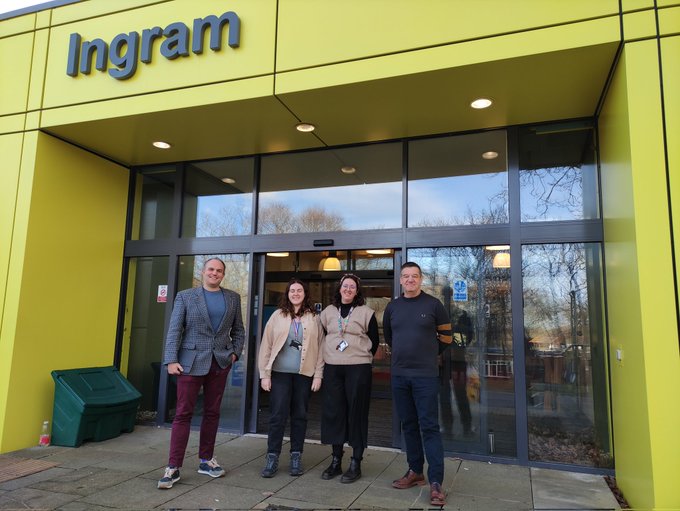“What Rob and his team have done is bring credibility, experience, an existing pool of knowledge -based on fact and research-, capabilities to deliver and come forward with ideas. The reputation of the University also enables reach in regard to marketing and publicity.”
Jon Barrett, Managing Director of Webcomm
Webcomm’s Jon Barrett is developing a platform to let design engineers compare the net zero and sustainability attributes of components, technologies and processes. This will help engineers reduce the environmental impact of the products they design and manufacture. He saw the University of Kent’s Net Zero Deep Dive training programme as an opportunity to access the expertise Webcomm needs to make this a success.
Challenge
To develop its service, Webcomm is inviting thousands of engineering suppliers to contribute the net zero status of their products. These are early days, so many suppliers may not know the answers, nor have the means or resources to calculate them, so Webcomm will need to provide the support to incentivise them to provide an accurate estimation. Attributes range from carbon embodied during the manufacturing process to design-for-assembly and product packaging.
Approach
Jon attended the Net Zero Deep Dive Training Programme hosted by the University of Kent as part of a wider Community Renewal Fund (CRF) project in partnership with the Kent Invicta Chamber of Commerce which aimed to help businesses meet their net zero targets. Through these workshops, Jon had the opportunity to connect with Lecturer in Chemistry and Forensic Science, Dr Rob Barker, and PhD student, Chloe Skingle, who devised a manageable approach to achieving his goals.
Together, they were awarded an innovation voucher to fund Rob and his team to assist Webcomm in creating a ‘digital wizard’ which engineering suppliers can use to help them capture the net zero status of their products.
Result
Webcomm’s software development team has started coding the Sustainable Engineering Project’s publishing platform. This will become the first open-source, collaborative database of sustainability-positive products, materials, technologies and processes. Environmentally conscious engineers will be free to use the resource to make better informed sustainability decisions when specifying bills-of-materials for new and updated products. Technology sectors covered range from polymers and fluid power to motors and power transmission.
As Jon explained, the work doesn’t stop there: “It would be unfair to ask engineering companies to invest in sustainability without Webcomm making an equal commitment. Thus, the company’s audacious goal is to develop the world’s lowest energy publishing platform. To underpin this promise, the site will include a ‘real-time counter’ letting visitors see the live carbon footprint of each page they visit.”
Phase one of the site will be revealed at the Electronic Component Show, Oxford, on 25 May.
“The sustainability agenda is the ‘wild west’ – it’s hard to work out who is an activist and who is a genuine player. At the end of the day, what matters is how businesses go about their daily work. Who knows what to believe, drives industry standards, and does the work – the bottom line is the University has done all of that.”
Dr Rob Barker and his team have also been working with Duke Voyagers Shipyard to decarbonise the yacht-building industry and Cummins to boost sustainable behaviour in the office. Find out more about the Duke Voyagers Shipyard project in the video below.
The Duke Voyagers Shipyard: Decarbonising the yacht-building industry
About the Community Renewal Fund
The UK Community Renewal Fund was designed to provide £220 million in additional funding to help places across the UK prepare for the introduction of the UK Shared Prosperity Fund. The University of Kent and the Kent Invicta Chamber of Commerce were awarded £625k for the ‘Net Zero Pathway for Change’ Project, which included the University-led Net Zero Deep Dive Training Programme, the Innovation Intervention Vouchers, and the Student Business Innovation Challenge. The use of the vouchers were limited to priority areas of Swale, Thanet, Canterbury and Gravesham.
This funding is no longer available but our dedicated business and innovation gateway team are regularly developing new ways to support the funding of innovation projects between our academic experts and the business community. To speak to our team about the opportunities available, get in touch here.

